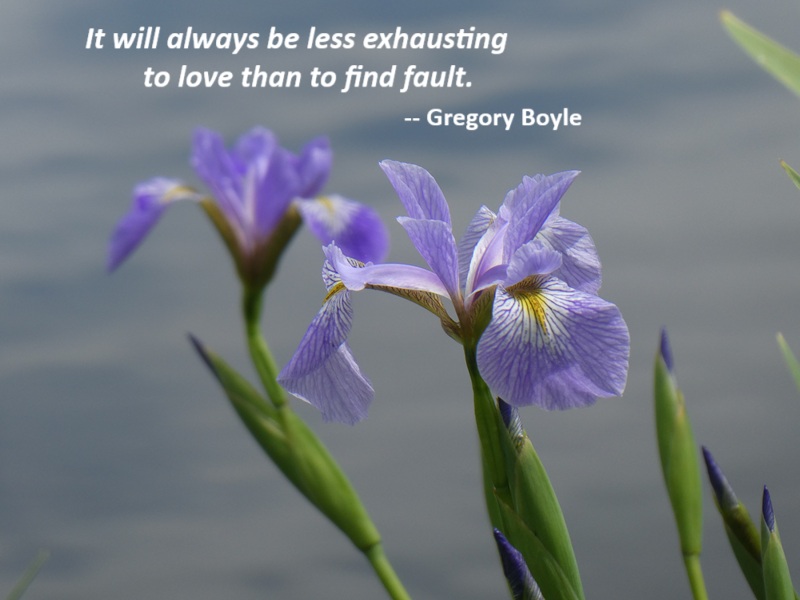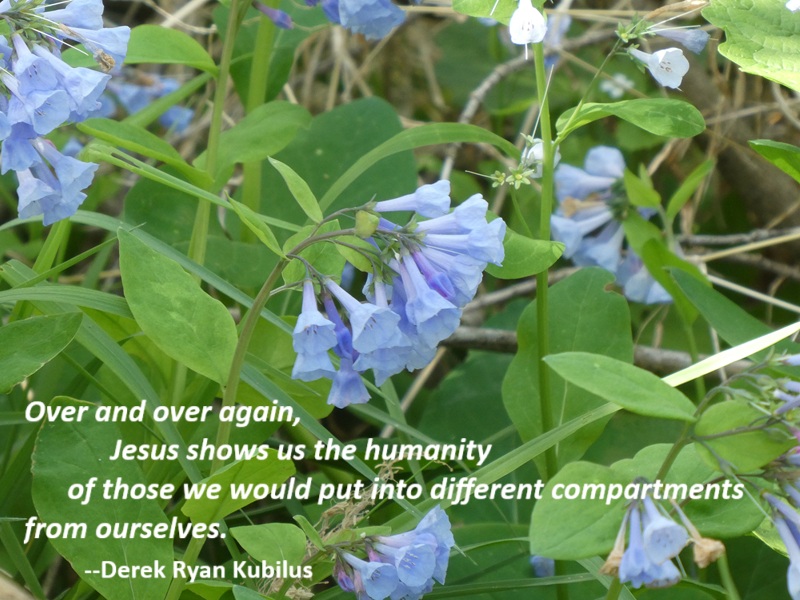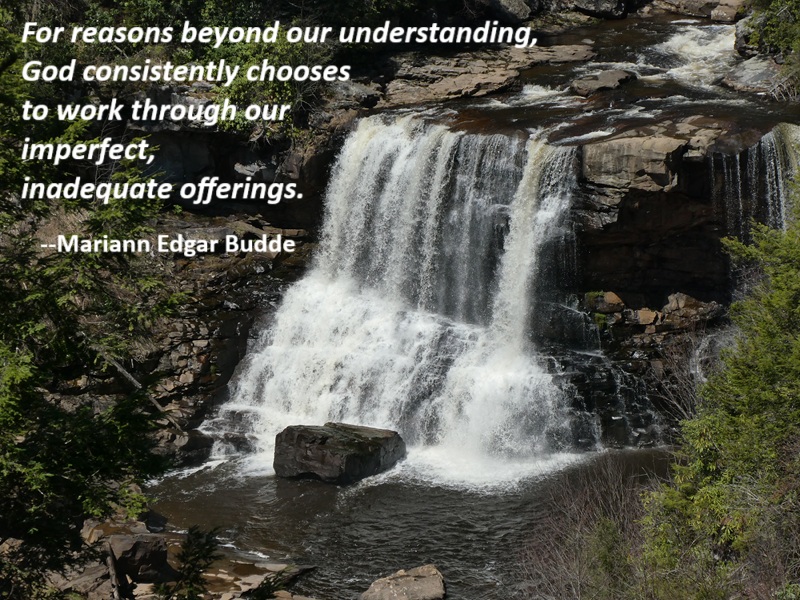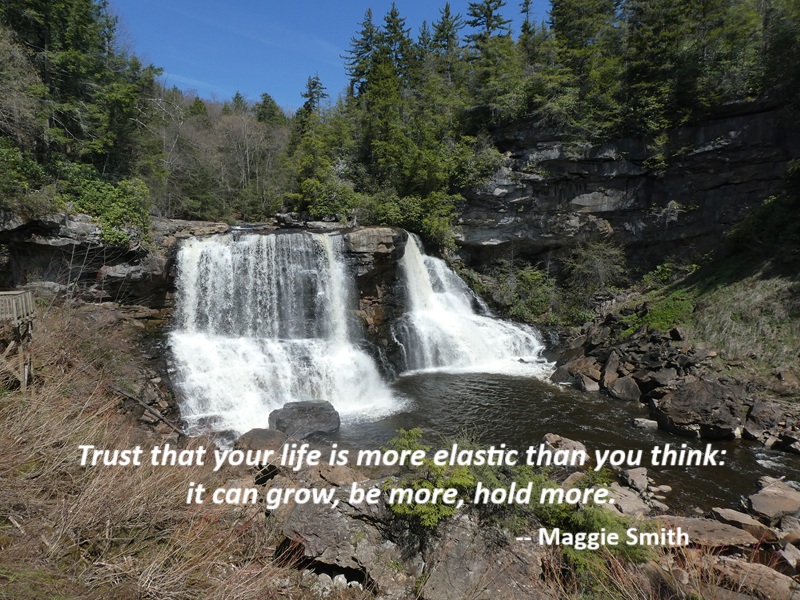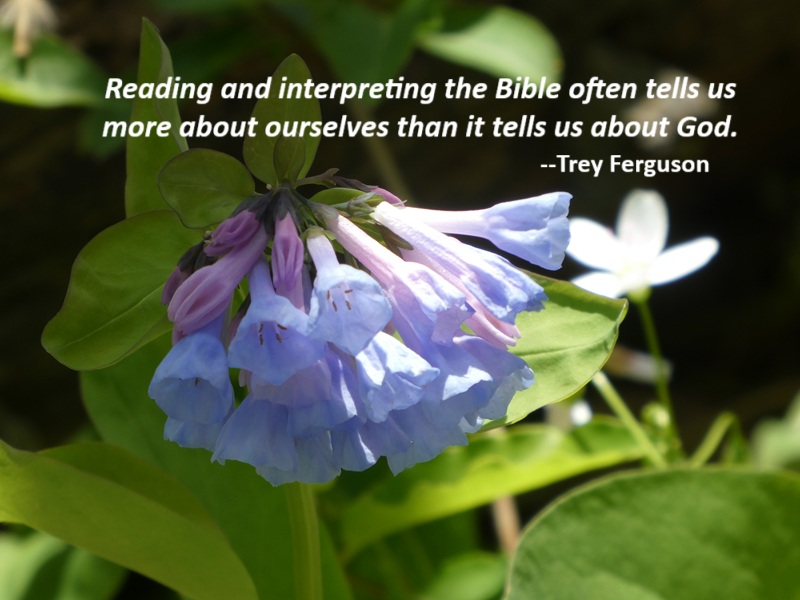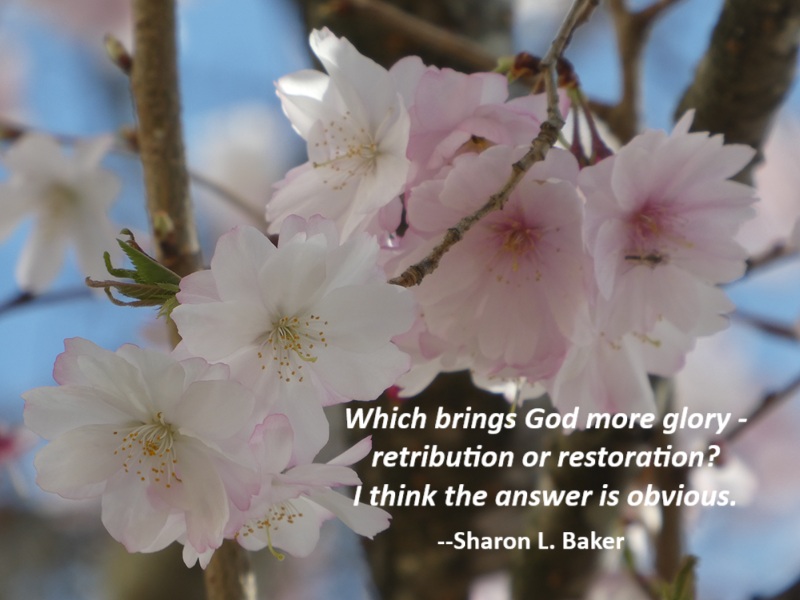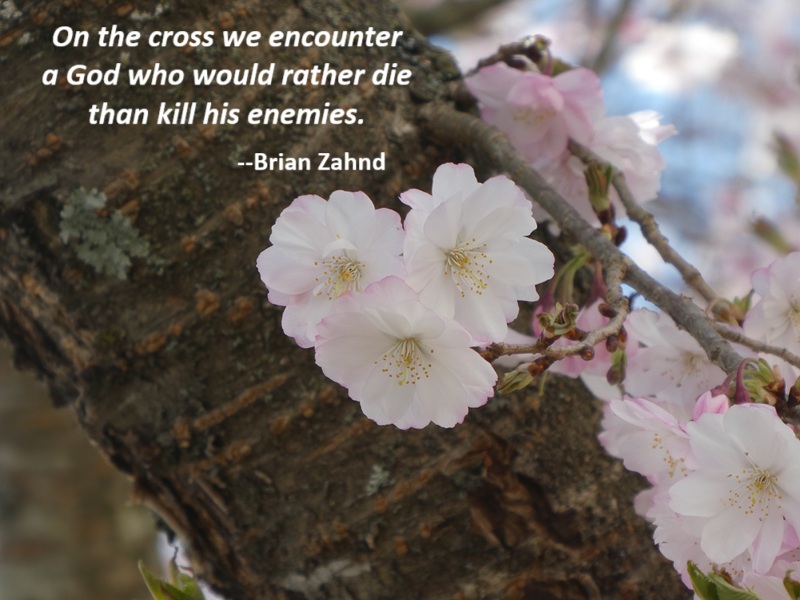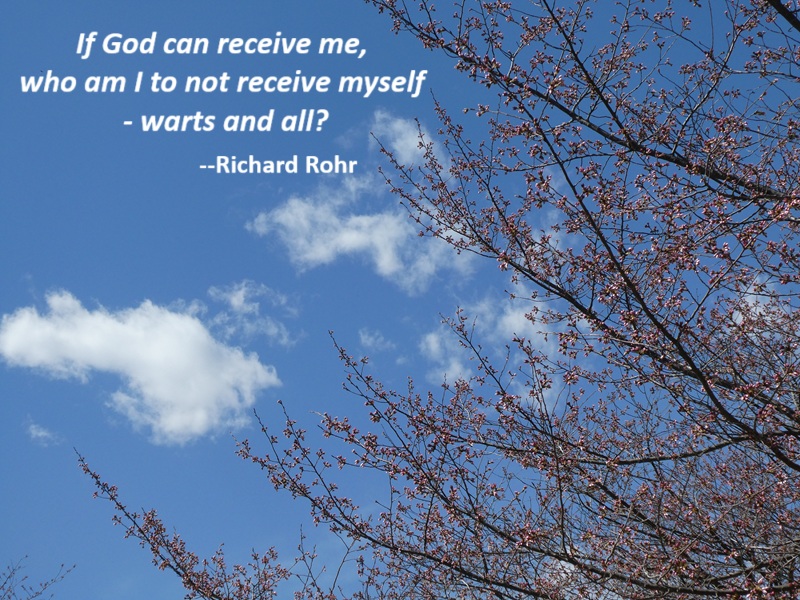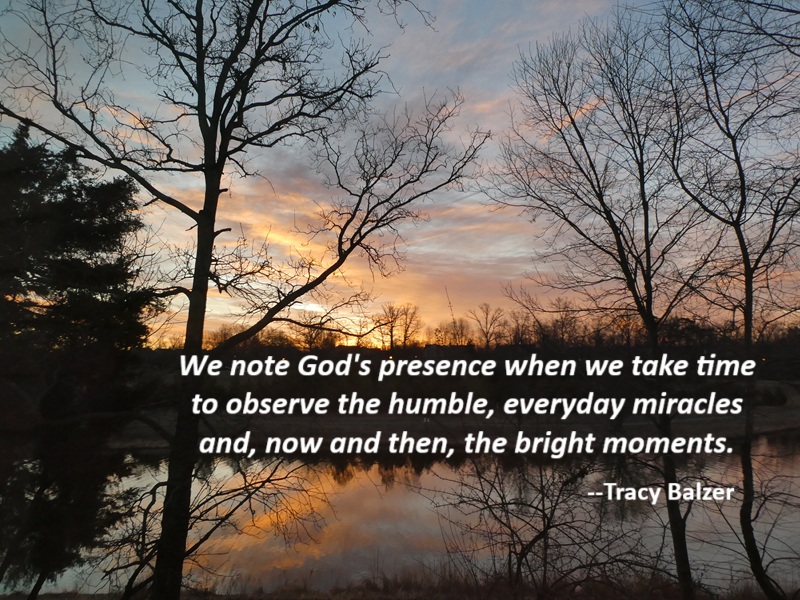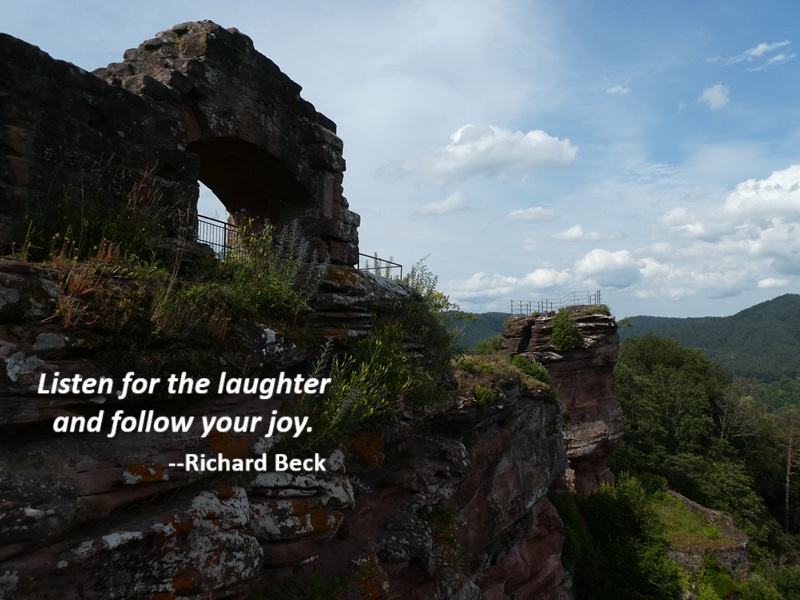Seeing Differently
It’s about seeing differently. We then undertake the search for innocence in the other. We cease to find the guilty party. We no longer divide into camps: Heroes and Villains. We end up only seeing heroes. We look for the unchangeable goodness that’s always there in the other. Love as the Geiger counter watching for any sign of light and strength. This goodness is a heat-seeking force. Love always sees how far we’ve come. You see Lefty and presume “he’s up to all good.” This real self, truly the Christ self, is experienced as expansive and huge.
It will always be less exhausting to love than to find fault. When we see fault, we immediately believe that something has to be done about it. But love knows that nothing is ever needed. Ever. As the homie Stevie says daily: “Love, love, and more love.” Only love sees.
— Gregory Boyle, The Whole Language, p. 40-41.
Photo: Purple irises by a lake, South Riding, Virginia, May 6, 2025
